These local businesses have acted to reduce their environmental impact. Be inspired by their actions and achievements.
Sustainable business profiles
Emmy Monash Aged Care
Emmy Monash Aged Care participated in a free energy audit program that we offered to ten local businesses. They were looking to reduce operating costs and identify energy efficiencies that could be applied.
The aim of the audit was to identify the primary users of energy and to provide recommendations that make the most business sense to reduce the energy usage and costs within a reasonable payback period.
They wanted to identify the key energy users within the complex, propose suitable recommendations on how to reduce energy usage and provide a cost benefit analysis including estimated implementation costs, payback periods, cost savings and expected greenhouse gas savings.
The result of the audit
This energy assessment has identified that there is scope to reduce the energy usage of Emmy Monash Aged Care by approximately 37 per cent, which is equivalent to an approximately $104,500 pa reduction in energy costs. This equates to savings of over $1.4 million over 10 years.
Changes included:
- changing Halogen lighting to LED
- conducting an air conditioning review
Savings could be achieved by applying a combination of energy reduction strategies. They are a combination of tariff savings and energy use savings.
With the help of our energy audit program, Emmy Monash Aged Care is on track to change the way they use energy and upgrade their inefficient infrastructure to make cost savings in the long term.

"Thank you for your initiative and providing us the services of eco decisions at no cost. Graeme spent time visiting the site few times, diligently went about assessing equipment we got. He has analysed electricity usage for both sites and given us a clear picture of what we need to look at in terms of saving some dollars. We are pleased, we received energy audit report and recommendations at no cost. We appreciate his service and highly value it.”
Indy, Engineering manager, Emmy Monash Aged Care
The Knight
The Knight is an Owners Corporation, Strata and Body Corporate management company with an office in Caulfield North. In 2021 they achieved Climate Active Certification as a carbon neutral organisation, becoming the first Owners Corporation Management company to do so. They were also named the winner of the 2023 Strata Community Excellence Awards’ Environmental, Social and Community Impact Award.
Sustainability highlights
The Knight has reduced their environmental impact through the following achievements and actions:
- Achieved a Climate Active carbon neutral certification in 2021.
- Provided all staff with reusable coffee cups.
- Recycling of soft plastics in a small bin saving about one bag of soft plastic from landfill a week.
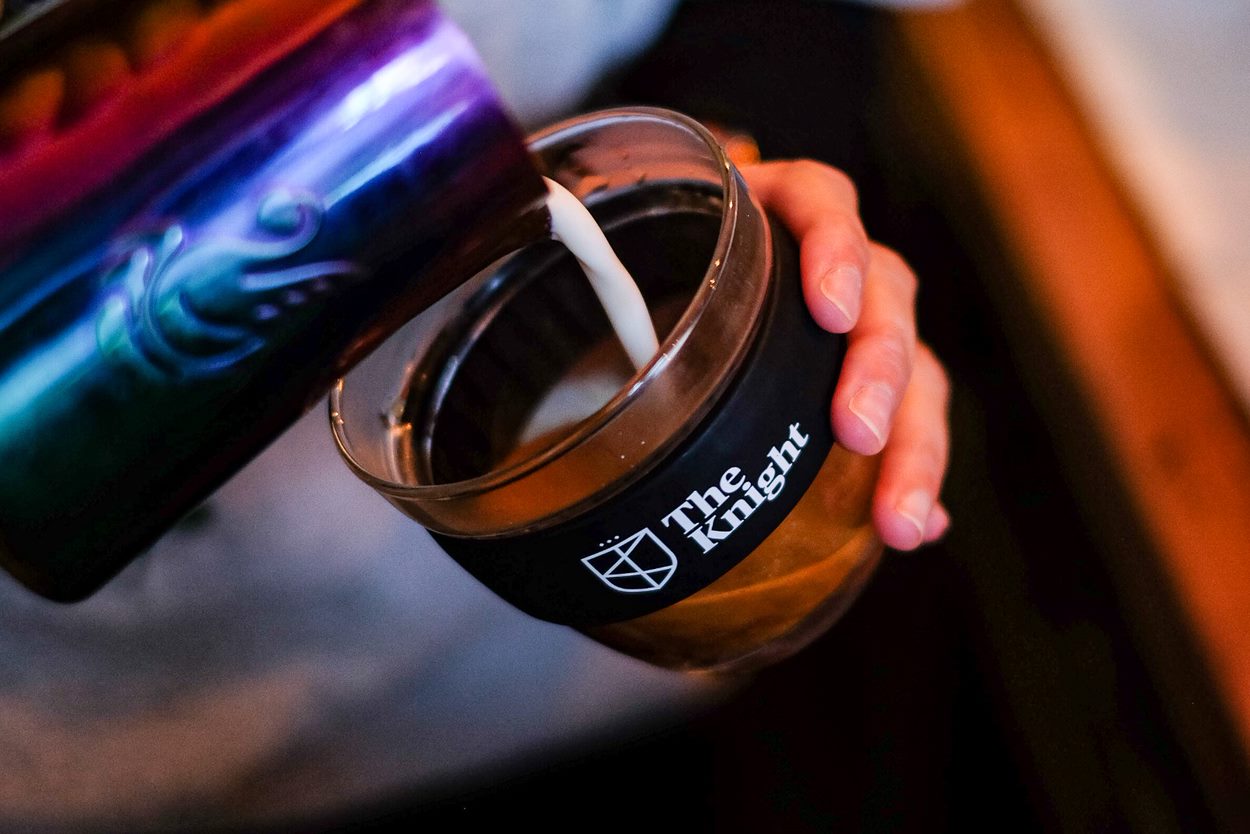
“Going carbon neutral for us was a way to lead by example and demonstrate to our industry colleagues and clients that sustainable strata is an option.” - taken from Climate Active
- Set up of e-waste bin for office equipment and broken fobs/remotes for their properties that is regularly dropped off at Officeworks
- Replaced paper business cards with Tapt cards
- Established an internal sustainability committee that meets monthly to discuss improvements internally and for clients
- Staff education through sustainability updates at regular meetings
- Ran an internal sustainability competition
- Moving to GreenPower in the Caulfield office, supporting renewable energy and reducing emissions
- Implemented an environmental and social policy
- Recycling all toner/printer cartridges and using recycled paper
- Banned use plastics at social events and appointment of a food officer to minimise food waste
- Won the Strata Peak Body SCA award for Strata Community Environmental & Engagement in 2021
- Regular education including webinars for clients on sustainability
- Assisting clients by creating a list of suppliers that have a sustainable focus
- Assisting clients with sustainable retrofits
- Currently a partner in Unlocking Sustainable Strata with Hip V Hype
- Food waste is recycled in the office compost bin which saves it from landfill or given away via the ShareWaste app
What advice would The Knight give to businesses on becoming more sustainable?
“Engage your staff first. This is the most important step. We give regular updates at our staff meetings on sustainability, have run a sustainability competition and include our sustainable initiatives in inductions. It ensures all our staff are onboard and aware of what we are doing.” — Alex Smale, Training and Sustainability Manager.
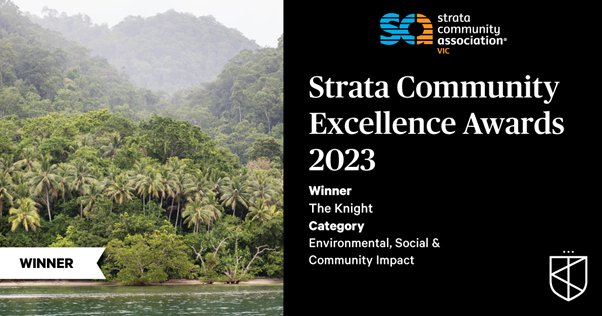
Oasis
Oasis Murrumbeena is home to a bustling café, a gourmet grocery store, a deli of epicurean proportions, a fresh food market and popular cooking school. Since 1998, this family business has been sharing authentic food from around the world with fellow food lovers and are also committed to reducing the environmental impact of their business.
Sustainability highlights
Oasis has reduced their environmental impact through the following achievements and actions:
- Their own initiative — OASIS | loop helps reduce the amount of materials going to landfill by using packaging that can be refilled or reused and ultimately recycled at home or at the store.
- Guides on various products in-store, letting you know that you can refill the original container that came with the product from the Oasis bulk foods department.
- In-store soft plastic collection partnership with Reground. Plastic collected gets sent to Close The Loop where it’s combined with recycled glass and toner from waste ink cartridges to make a material that replaces bitumen in asphalt production, giving materials a chance at a second life.

“Sometimes the simplest things have the biggest impact. We divert as much food from landfill by collecting it and giving it to our mother so she can feed her flock of chickens.”
- Coffee grounds are collected and given to community gardens, local gardeners, Melbourne Zoo and other enterprises to make compost.
- Moving away from single-use plastics by:
- Transitioning to bio-degradable materials — mostly sugarcane pulp, paper, cardboard and PLA. Estimated reduction of 500kg of plastic per year.
- Eliminating plastic drink packaging and moving to glass and aluminium packaging. Estimated reduction of 60,000 plastic bottles or about 1,500kg of plastic per year.
- Transitioning to cardboard packaging for pre-packed boxes of desserts. Estimated reduction of 1,200kg of plastic per year.
- Transitioning to glass packaging for chai and tea range. Estimated reduction of 200kg of plastic per year.
- Changing to a fully recyclable material in stand-up pouches. Estimated reduction of 2,000kg of plastic per year.
- Changing to refillable spice shakers that use 11% less plastic than the tubes before. Estimated reduction of 200kg of plastic per year.
- Divert as much food from landfill by collecting it and giving it to their mother so she can feed her flock of chickens.
- Leftover bread is donated to charitable organisations.
- Food scraps are supplied to farmers who feed their livestock and pet food manufacturers who incorporate them into pet food.
- An estimated 10,000 litres of waste oil from fryers is recycled into biodiesel that’s mostly used to operate farm machinery to produce more oil.
- Installation of a state-of-the-art combined refrigeration and air-conditioning system in the Fairfield store which uses a natural refrigerant — carbon dioxide gas, for its operation. This system will avoid the emission of 2,000 tonnes of CO2-equivalent gas over its twenty-year lifespan.
- Heat is reclaimed from the refrigeration system and used to heat the shop in winter and dehumidify it in summer. This results in a net reduction in greenhouse gas emissions of 500 tonnes of CO2-equivalent gas over its twenty-year lifespan.
- Installation of a new heating system at the Murrumbeena store that will avoid the emission of 1,000 tonnes of CO2-equivalent gas over its twenty-year lifespan.
Mr Burch
Located in McKinnon village, Mr Burch has a friendly and homely atmosphere and offers classic breakfast and lunch items seven days a week. Sustainability and supporting local creatives are at the heart of this business. Mr Burch reduces their carbon footprint by recycling, composting and striving towards zero waste.
"We really want people to avoid wastage like paper cups and plastic lids. Coffee and drinks also stay hot for longer in reusable cups.”
Sustainability highlights
Mr Burch has reduced their environmental impact through the following achievements and actions:
- Coffee waste goes to compost
- Separate recycling stream for recyclable products
- Plastic milk bottles are taken back by their supplier
- Cooking oil is collected for second life, and not into landfill
- Customers are encouraged to BYO keep cups
- 20c discount for BYO cups
- Paper takeaway cups are an extra 20c surcharge
- This saves an average of 20 coffee cups a day from going to landfill
- Customers are encouraged to bring their own take away containers
- Paper containers and paper bags are only provided for take away
- Only glass bottled drinks are sold
- Used milk cartoons are cut out and made into coffee cup holder trays for take away coffee
- Organic waste goes to their compost bin or to home compost
- Single-use plastics are banned
- Local produce and local suppliers are used (cakes, raw materials, milk, vegetables)
- Blankets are provided outside instead of turning on the heater
- LED lights in the shop
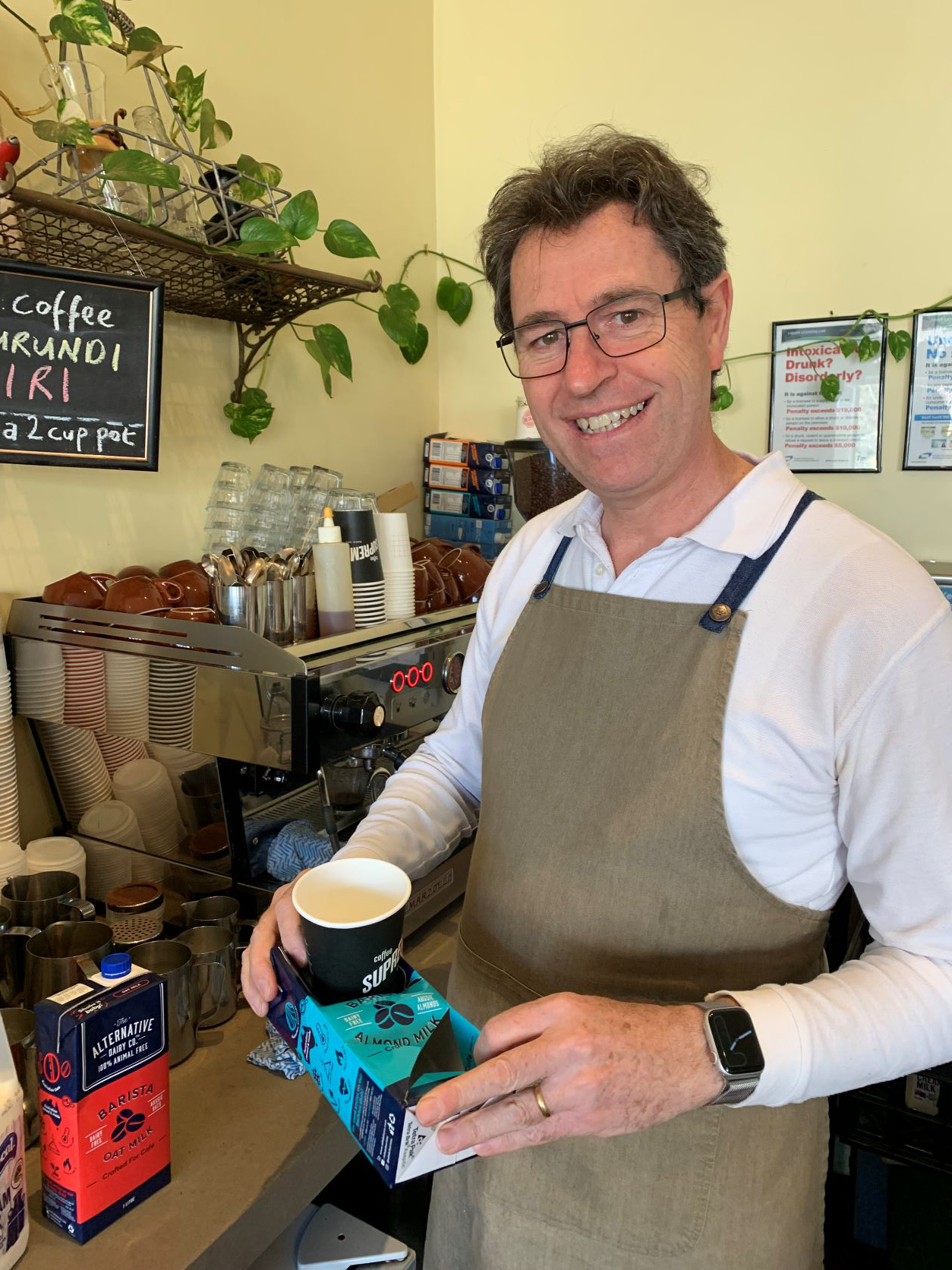
What advice would you give to businesses on becoming more sustainable?
“Pay attention to what you throw away, start by strictly separating the recycling, organic and general waste. Can any of the items in the recycling bin be re-used or redirected, as we’ve done for milk bottles? How can you keep the general waste to an absolute minimum?
Customers do notice and really love to see the effort you make to be sustainable.
You can potentially save some money by reusing, for example reuse carrier trays and use less ‘one use’ takeaway cups.”
Chevra Honey
Chevra Honey began in 2015 when Jonathan Landes and his four lifelong friends embraced the experience of establishing bee colonies in the suburbs. They now have 40 locations throughout Melbourne and run an inner-city farm near Fairfield.
“We want people to know that bees are essential to our environment and food chain.”
They are also starting a new hive in Carnegie, working with the Graceburn Bees Resident Project.
Sustainability highlights
Chevra Honey works with the local community to encourage sustainable beekeeping and provides education around starting and maintaining beehives. They sell honey from their local beehives and have many sustainable practices in place.
- From resident’s gardens to community areas, there are 30 beehives in Glen Eira.
- Working with the Graceburn Bees Resident Project in Glen Eira to set up hives in the laneways.
- Provide education around beehive management, basic beekeeping and the best bee-friendly plants to make your garden more environmentally diverse and attractive to bees.
- Honey is locally produced, from the hives in Glen Eira and jarred at their workshop. All honey is locally produced, harvested and jarred.
- The ‘farm gate shop’ sells local kosher honey and beekeeping products. They also have an observation hive and chickens — the community is free to come and visit and learn more about local beekeeping.
- Natives are planted in their garden, and they encourage the community to plant along their nature strip to provide a corridor for the bees to the hives. This also encourages insects and birds, which are important for the environment.
- Chevra Honey will go out to homes interested in starting a beehive and consider the suitability from all aspects — from the garden itself to neighbours, pets and kids as well.
- Encouraging good hive management to minimise swarming.
- Using recycled water.
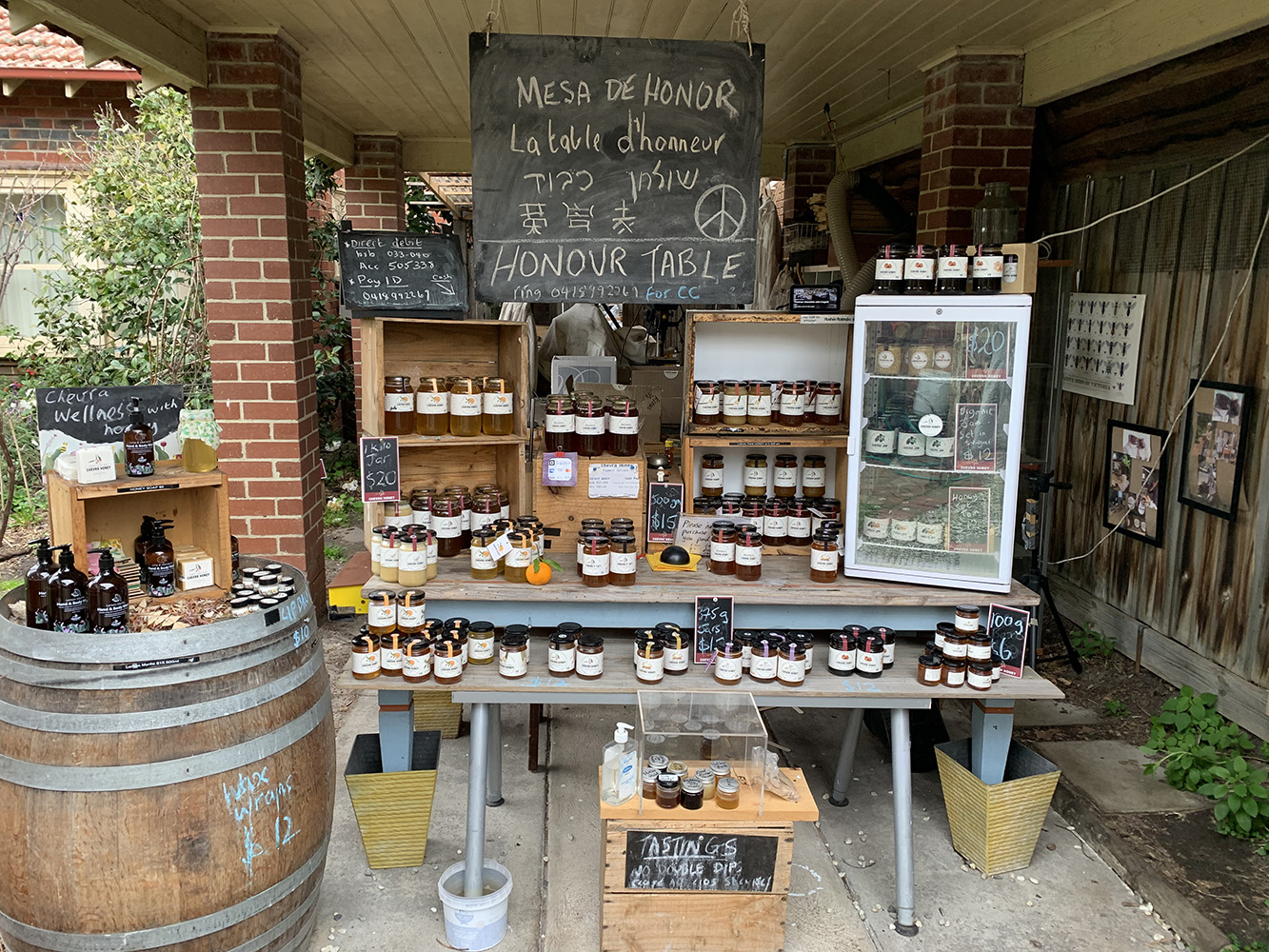
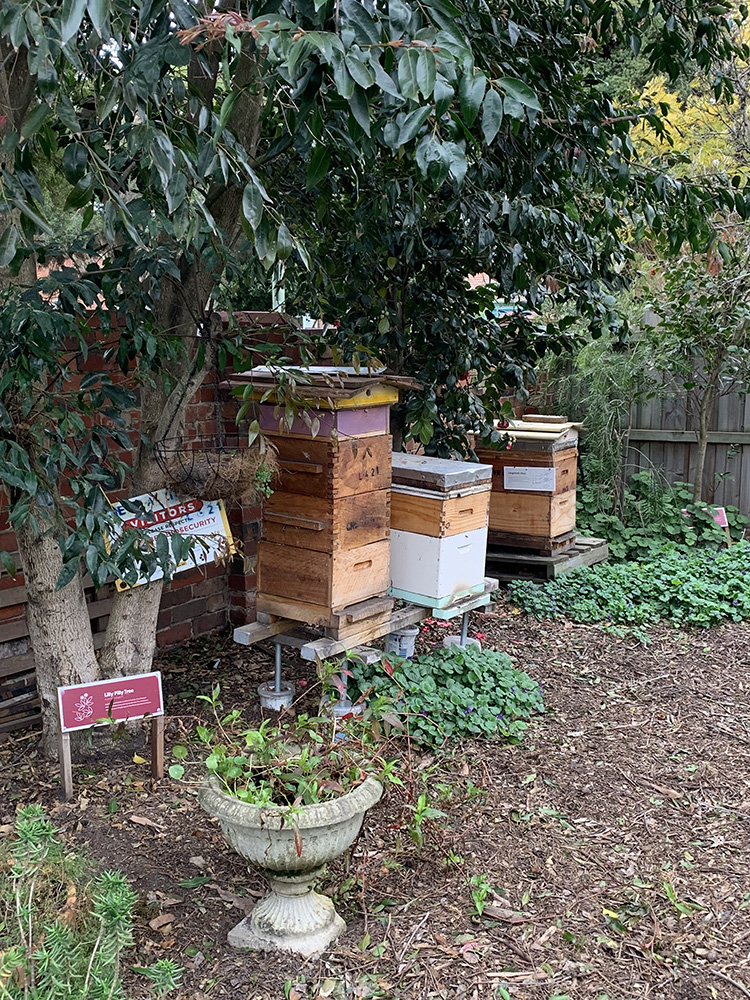
What advice would you give to businesses on becoming more sustainable?
“People have to reach out and care about our local environment. You can connect with people and make friends. It’s good for the urban environment, the community, and it is good personally.”
Want to make your business more sustainable?
If you have any enquiries about making your business more sustainable email us at Sustainablebusiness@gleneira.vic.gov.au or read more about sustainable business.
